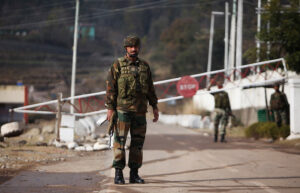GS-2: International Relations

Key Highlights
- India and Pakistan have announced a ceasefire understanding following the April 22 Pahalgam terror attack.
- U.S. officials, including President Donald Trump and Secretary of State Marco Rubio, claimed to have facilitated this dialogue.
- The article cautions against third-party involvement in the Kashmir issue, reinforcing India’s longstanding position.
- The new security doctrine underlines India’s right to retaliate militarily in response to cross-border terror.
- The ceasefire was achieved after three days of intense conflict and significant loss of life and property.
Detailed Insights
- The U.S. claim of mediating a ceasefire has revived concerns about the internationalisation of the Kashmir dispute.
- Historically, India has opposed any third-party mediation, upholding the bilateral nature of the issue as per the Shimla Agreement (1972) and Lahore Declaration (1999).
- The Modi government’s new doctrine signifies a shift toward preemptive military action against terror bases in Pakistan.
- While the ceasefire is a welcome development, the article emphasizes the need for transparency and parliamentary accountability regarding the costs and decisions taken during the conflict.
- It criticizes both the BJP and the Congress for competitive nationalism, urging them to focus on constructive and cooperative political discourse.
Scientific/Technical Concepts Involved
- None directly, though strategic and military doctrines like preemptive self-defense, deniability, and cross-border terror response frameworks are implied.
Significance
- The article underscores the importance of safeguarding India’s sovereign decision-making in security matters.
- Raises concerns about the erosion of domestic political consensus in foreign policy matters.
- Reinforces the need for a pluralist and democratic identity in responding to security threats while avoiding communal polarisation.




